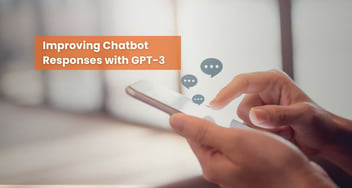Debugging Techniques for OpenAI-Powered Chatbots
The article discusses crucial debugging techniques for OpenAI-powered chatbots, including error handling, input validation, logging, version control, and unit testing. These methods enhance chatbot reliability and user interaction, ensuring a seamless experience.

Chatbots powered by OpenAI's language models have become increasingly popular for various applications, from customer support to natural language understanding tasks. While building and deploying these chatbots can be exciting, debugging them can be challenging due to the complexity of natural language processing and the intricacies of OpenAI models. In this article, we'll explore some effective debugging techniques for OpenAI-powered chatbots, complete with code snippets.
Error Handling
Error handling is crucial when dealing with chatbots, as they can encounter various issues, such as API rate limits or unexpected user inputs. Here's a Python code snippet that demonstrates basic error handling using OpenAI's GPT-3 API:

This code captures any errors that occur during the API call and provides a clear error message for debugging purposes.
Input Validation
To ensure your chatbot handles user input correctly, it's essential to validate and sanitize inputs. Here's an example of input validation in a chatbot that generates captions for images:


In this example, the `generate_caption` function validates the image URL before passing it to the AI model. If any errors occur during the process, it provides a user-friendly error message.
Logging and Monitoring
Logging and monitoring are essential for diagnosing issues in a chatbot's behavior. You can use libraries like `logging` to record important information and errors. Here's an example of setting up logging in a chatbot:

In this code, any errors that occur during the processing of user input are logged into a file for later analysis.
Version Control
Maintaining version control for your chatbot's codebase is essential for tracking changes and rolling back updates in case of unexpected issues. Use version control systems like Git to manage your codebase effectively.
Unit Testing
Implement unit tests for critical parts of your chatbot's code, such as input processing and response generation. This ensures that individual components of your chatbot function as expected.

Unit tests help catch errors early in development and ensure that changes to your code do not introduce new issues.
Choose Our AI Development Solutions for Success!
From concept to deployment, we bring your vision to life through advanced AI development. Reach out to our experts to discuss your project.
Conclusion
Debugging OpenAI-powered chatbots, a crucial aspect of generative AI development, involves implementing error handling, input validation, logging, version control, and unit testing. These techniques ensure identifying and fixing issues, creating reliable and user-friendly chatbots.


%201-1.webp?width=148&height=74&name=our%20work%20(2)%201-1.webp)


.png?width=344&height=101&name=Mask%20group%20(5).png)
















